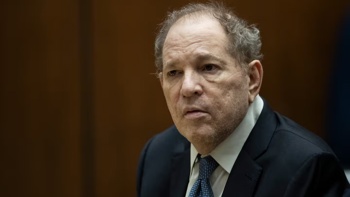Labour leader Chris Hipkins concedes Labour didn’t do enough to address public concerns about unruly state housing tenants as the current Government seeks to use the threat of eviction to improve behaviour.
However, the party’s current housing spokesman Kieran McAnulty seems unable to provide an alternative short-term solution that would allay community concerns and is instead claiming increasing the number of public houses is the answer.
Prime Minister Christopher Luxon and Housing Minister Chris Bishop yesterday announced the Government had ordered Kāinga Ora’s board to scrap the Sustaining Tenancies Framework, which aimed to sustain tenancies with a goal to avoid evictions and exits into homelessness, while also balancing obligations to neighbours and wider communities.
Bishop claimed the latest data said there were 335 serious complaints about Kāinga Ora tenants per month, which included intimidation, harassment and threatening behaviour, but only three tenancies had ended in 2023.
“At a time when there are over 25,000 people on the social housing waitlist, Kāinga Ora should not be prioritising tenants who abuse their home or their neighbours above families who are anxiously waiting for a home,” he said.
The Government had also told Kāinga Ora to address the growing level of state house tenants’ unpaid rent, which had increased from $1 million to $21m between 2017 and 2023. More than 450 Kāinga Ora tenants each owed more than $10,000 in rent at the end of last year.
Hipkins said he had not been aware of the rising debt while he was Prime Minister during the last term of government, but he admitted the previous Labour Government didn’t sufficiently address the impact of tenants’ bad behaviour.
“We did make some changes, but I think it’s probably an area where we could have done more,” he said this morning.
“I have some sympathy for some of the changes that they’re making around Kāinga Ora because I think anti-social tenants who are terrorising their neighbours, there should be further consequences to that.
“I tend to lean more towards a transfer policy rather than an outright eviction. You may be able to relocate them to an area where there’s less of a problem and it’s about 90 per cent of the cases where relocation has happened, the problem actually goes away.
- Govt has "serious concerns" about Kāinga Ora's performance
- Kainga Ora crackdown a "great step in the right direction" - Business Association
- Previous Govt's "unacceptable" approach to Kainga Ora housing under fire
“But I also don’t think that the tenant should certainly be left there when you know neighbours are being unfairly persecuted.”
Labour housing spokesman Kieran McAnulty says building more social houses is the answer. Photo / Warren Buckland
In a statement yesterday, McAnulty criticised the Government’s unclear position on how many state homes it would build, saying supply was key to ensure evicted tenants had somewhere to go instead of motels or becoming homeless.
However, McAnulty did not provide any interim solutions that could ease community concerns, which he acknowledged were fair.
“In the absence of a commitment of social houses, we’ve got to look at the broader issue.
“There has to be a better way than just saying we’re going to kick these people out.”
Yesterday, Bishop was unable to provide data on how many of the Kāinga Ora tenants who had been the subject of a complaint had children, saying he had not received that information.
Asked whether the Government’s direction to Kāinga Ora sufficiently considered the impact it would have on children, Bishop defended the move as the “right thing to do.
“My message is if you don’t want to be kicked out of a state house, don’t abuse the right to live in a state house.”
Evicting a Kāinga Ora tenant was effectively a three-strikes framework, in which Kāinga Ora had to issue three notices to a tenant regarding their behaviour before it could apply to the Tenancy Tribunal for eviction.
Bishop rejected the assertion that the new direction would lead to more people becoming homeless, instead claiming the threat of being evicted would help change behaviour and therefore reduce homelessness, but he couldn’t point to advice from officials to back up his claim.
Adam Pearse is a political reporter in the NZ Herald Press Gallery team, based at Parliament. He has worked for NZME since 2018, covering sport and health for the Northern Advocate in Whangārei before moving to the NZ Herald in Auckland, covering Covid-19 and crime.
Take your Radio, Podcasts and Music with you









